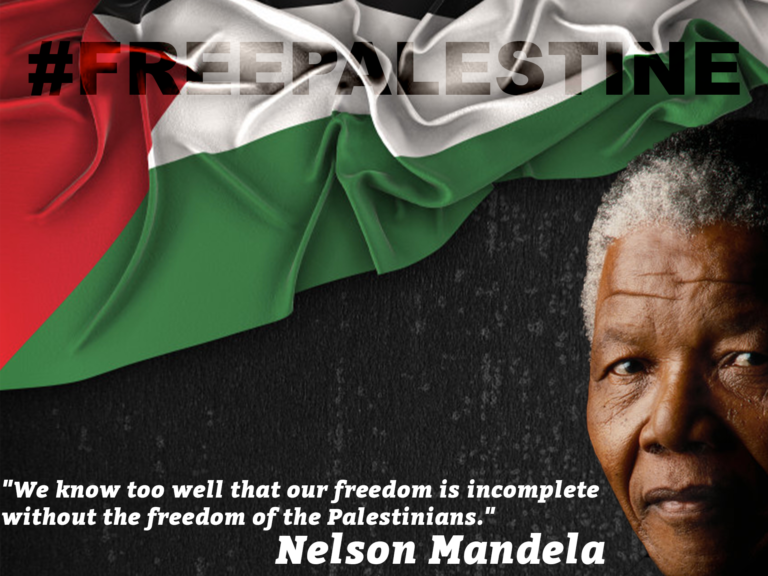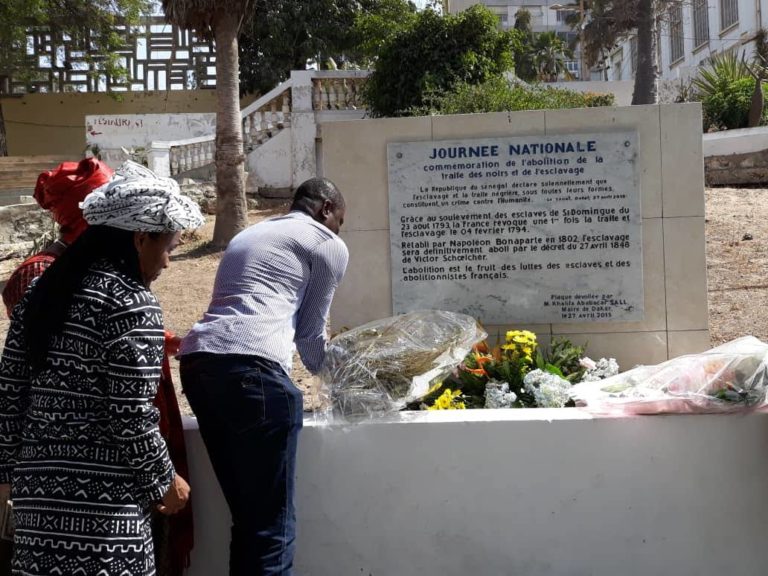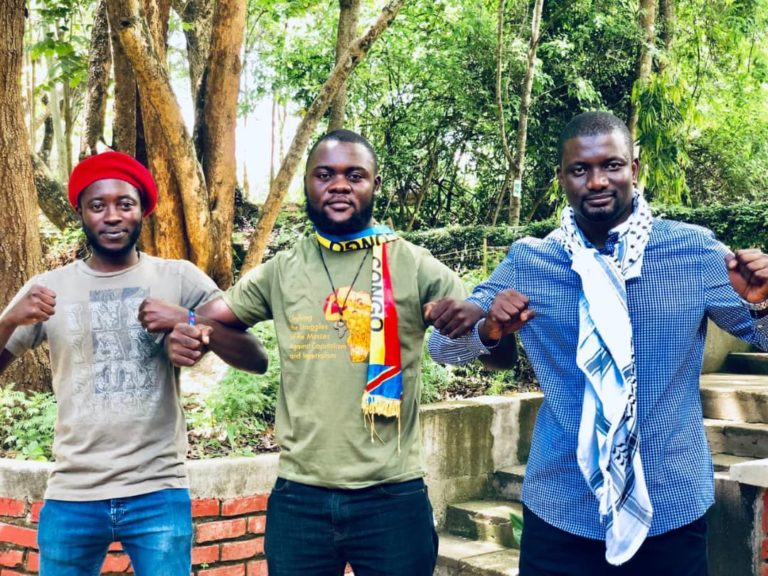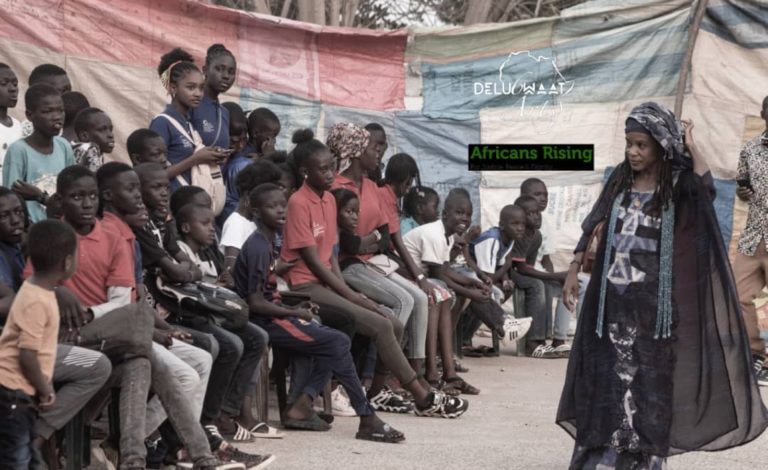African Feminist Post-COVID-19 Economic Recovery Statement
Preamble: African feminists have come together to reimagine the future of African political economies. This statement to the African Union envoys, who were appointed to mobilise international support for our economic recovery, contains a set of recommendations and asks the envoys to join us in re-thinking our economic development. If you identify as an African feminist and agree with the recommendations we would like you to sign-on to the Statement.
Dear Dr Ngozi Okonjo-Iweala, Dr. Donald Kaberuka, Mr. Tidjane Thiam, Mr. Trevor Manuel and Mr. Benkhalfa Abderrahmane,
We write this letter to you in your capacities as the Special Envoys that the African Union has mandated to mobilise international support to address the coronavirus pandemic in Africa. We are a constellation of African feminists who are steeped in pan-African visions for a liberated Africa. These visions enable us to dare to believe that there are ample solutions and resources to the many pandemics that our continent faces. We are part of various communities, formations, sectors and disciplines including law, feminist organising, fund mobilisation, economics, land and agrarian rights, health, cultural production, development studies, food sovereignty, tax justice, ecological work inter alia.
We need solutions and COVID-19 has provided us with an opportunity to reimagine African political economies. This moment requires a pan-African response that creates an enabling environment for people and movement led economic work, including but not limited to cooperative and solidarity economics, to be given the support and space to flourish. COVID-19 needs to be a turn-around point from orthodox laissez-faire models and overly financialised states. This crisis is an opportunity to dislodge structural inequality and re-frame the political economy which contributed to this tipping point. We have been actively working on, producing data and building ground up movements since structural adjustment. Most of us – like yourself – lived through Structural Adjustment Programs and the hollowed states that remained. The financial crisis of 2008 was an acute rupture of globalisation and a reminder that unfettered markets cannot be the primary arbiter of wealth and economic distribution. Our states in all their imperfection are the tangible entities where we reside, produce, consume and eventually will be laid to rest.
The credit crisis was enormous and pervasive, and it altered our world in ways we are still realising. Sadly though, any crisis can seem banal and even invisible. People adapt and come to accept the changes wrought by crisis. This cannot be the case here. The resilience of market logic has taken hold and flattened markets to the extent that economic orthodoxy and neo-liberal forms of production are viewed not just as coincidences of globalisation but rather the natural order of our universe. COVID-19 has flattened that universe and we have the chance to reframe state capacities and the draconian measures that they often use to enforce social order in a fragile time.
Initiatives like the African Charter for Popular Participation for Development, the UN New Agenda for Development of Africa vision 2020, the New Partnership for Africa’s Development (NEPAD) have not yielded substantive dividends. If the sum total of all these previous initiatives has brought us to this moment, we need to rethink our options. We need a deeper re-orientation of African development which goes beyond COVID-19.
As Africa now moves towards raising increased financial support in response to the impacts of the pandemic, the weaknesses of dominant policy templates and development financing models must no longer compromise the autonomy of African states to effectively deliver the mandate of Africa’s people. African “growth” over the last twenty years has been accompanied by pervasive unemployment, whilst wealth and inequality gaps are now at their highest levels. Decades of reduced public spending has left millions without access to basic services such as healthcare, whilst the movement towards privatising those services and resources (including water and energy) further compromises equitable access as a result of basic services being commodified and subject to market rules and shareholder needs. Meanwhile, the tunnel visioned policy focus on industrial and export-orientated agriculture has failed to deliver food security for Africa. Additionally, the lack of investment in localised food systems that center food sovereignty has had detrimental impacts on African biodiversity and climate resilience.
The gender dimensions of prevailing policy models are still not fully acknowledged or considered, including how those models deepen women’s economic inequality by exploiting their labour inside and outside the home; invisible, poorly paid, unpaid, and insecure. As COVID-19 continues to move across the continent, the absence of social safety nets needed by women due to their greater fiscal precarity in the face of economic shocks has exposed the failures of a development trajectory currently prioritising productivity for growth over the wellbeing of African people. Indeed COVID-19 has made evident what feminists have long emphasised: that the profits made in economies and markets are subsidised by women’s unpaid care and domestic work–an essential service that even the current pandemic has failed to acknowledge and address in policy.
We have history on our shoulders which requires us to reflect strongly and honestly about the repercussions of continuing on this dogmatic debt track. We are soliciting funds while Africa has a net capital outflow of money. What posterity does this offer future generations? We are concerned about the forms and sources of finance and the accompanying conditionalities. In past generations these have increased our burden of unpaid work on African women. We have the feminist hope and expectations that your plans for this continent are in alignment with a progressive, forward looking vision. COVID-19 has shown us where our structural weaknesses are and history has shown us that old ways are not working.
We call on you to ensure that you create an open, inclusive and transparent process to shape how you undertake the work and interpret what your efforts at mobilising support produces. This process needs to move beyond just including ‘expert economists’ to also include groups which have been thus far marginalized by the current economic model. In light of this, we would like to begin a conversation with you. We want to hear your thoughts and vision for African countries, African economies, resource mobilisation and African peoples beyond COVID-19. We would like an audience with you to discuss this further, including through a webinar. There are more crises coming our way and we want to support co-creative futures thinking. Below is a set of recommendations we want to put forward as the first step in our engagement.
Recommendations:
- Acknowledge that all African constitutions guarantee the fundamental right to equality – and that this needs to underpin the vision and direction of any policy including economic and social policy around COVID-19 response and recovery. This necessarily means policy interventions and budgetary allocations that seek to reinforce rights for those most marginalised by current policies and thus more heavily affected by COVID-19 impacts including women broadly but also intersecting axes of structural marginalisation including economic status/class, disability, HIV status, sexual orientation and gender identity.
- Localized food supply chains should be bolstered with monetary and resource support going directly to support small-holder farmers across Africa, the guardians of biodiversity, Indigenous seed, and land. Ministries of Agriculture across the continent should collaborate with the economic, climate, and food sovereignty movements across Africa to divest from industrialized agriculture and to support the implementation of agroecology, including the right of farmers to to save and share seed, in communal, national, regional and pan-African spaces. Additionally, the colonial legacy of resource extraction from Africa through export facing trade practices needs to be upended. In terms of food the insistence on monocropping for the export market has decreased the diversity of crops necessary for a balanced and nutritional diet in our own communities and has displaced Africans from their lands by giving millions of hectares of land to private enterprises by incentivizing the implementation of corporate-backed initiatives. This is despite the fact that it is small-holder and subsistence farmers across Africa who feed the majority of people in Africa and not corporations.
- The outbreak of COVID-19 has demonstrated the clear link between health and environment. Thus, maintaining the integrity of Africa’s ecosystem while enabling communities to derive livelihoods and benefit from natural resources should be part of any economic recovery plan. Rather than focus on market based interventions to conservation, African governments need to prioritise conservation and sustainable use of biodiversity for the benefit of communities who are custodians of the resources and whose livelihoods are directly dependent on natural resources.
- The role of the State has been consistently hollowed out since the introduction of structural adjustment programmes and requires reinvigoration, through the direct participation of African peoples charting the way, to be the guarantor of rights, and arbiter of socio-economic distribution and equitable access to social infrastructure. This necessitates the decommodification of, and institution of, basic universal access to land, water, food, healthcare, education, housing, sanitation, electricity and information technologies. Public-Private Partnerships have dangerously obscured the role of states and created undemocratic hierarchies of access resulting from user fees. Access to energy, education, transport and healthcare for example facilitate the social reproduction and survival of unemployed, working class and agrarian households in the absence of adequate state provisioning.
- According to the ILO, “informal employment is the main source of employment in Africa, accounting for 85.8 per cent of all employment” with “almost all of the agricultural sector in Africa [being] informal [at] 97.9 per cent”. The informal economy, or rather the popular or horizon economy, is the engine of African markets. States must use this opportunity to re-orientate economic models and protections to recognise that African economies are predicated on this invisibilized work. This economy is treated as ‘adjacent’ or ‘informal’ primarily because it is largely driven by the labour of women. Measures like GDP and GNP are ineffective measures of the enterprise that occurs in this sector. Accordingly, all workers must be guaranteed a dignified wage, safety protections in their work space, and paid sick leave.
- No turnaround in Africa’s socio-economic fortunes will happen without recognising the economic, social, political and cultural value of the care economy–where the provisioning of care goods and services to households and the economy is predominantly through women’s invisibilized, unpaid and domestic labour, but also in many forms of popular/horizon sector, migrant and public sector jobs that are precarious, badly paid and without labour protections. Governments have increased the burden on women by increasing reproductive care and domestic work, because they have consistently withdrawn from their internationally recognised human rights obligations to promote social rights and equity. The time is well overdue for policies that recognise the centrality of care work for health systems and the economy, meaning governments must roll out various support measures for a resilient care sector that does not rely on the exploitation of women in the home and in the workplace.
- It is vital to reinforce prioritisation of government budgetary investment in social protections including quality and accessible social services for all populations. This is a decisive moment and opportunity for African states to not only rebuild their administrative and resource capacity to deliver social services, but also recover their standing in the eyes of African people.
- It is necessary to consider responses that do not just seek to address direct impacts of COVID-19 but build the broader strength of health and social protection systems horizontally, acknowledging that this is fundamentally political, and about designing and sustaining systems for the wellbeing of the majority. There have been several epidemics and pandemics affecting the African continent and COVID-19 won’t be the last. In fact, the lack of health and research infrastructure for others, like HIV/AIDS and malaria, have become worryingly normalised. Furthermore, it needs to be stated clearly that outsourcing this work to philanthrocapitalists is a failed strategy and perpetuates a narrative that the African state is incapable of providing for African peoples. It further privileges white male philanthrocapitalists, vesting a few western voices with far more volume than entire African nations. They do not have an interest in systemic solutions because to achieve those solutions would require dislodging them from the centers of power they are invested in fortifying.
- Patent protections and other intellectual property laws have further consolidated a commodified approach to health care in Africa. In recent memory is the fight for African peoples to be able to access ARVs, a fight that took millions of lives because the profit margins of corporations were put ahead of saving the lives of African peoples. We cannot afford to keep repeating the same mistakes perpetually. Knowledge cannot be a commodity, all vaccines and medicines related to COVID-19 and beyond must be universally accessible for all people, as should the related knowledge.
- Beyond the request for debt moratoriums in response to COVID-19, debt cancellation should be a priority. Conditionalities surrounding financial assistance to the continent must also be rejected by African governments. Conditionalities will impact on the ability of states to deploy socially responsive policies such as those recommended above, and in particular terms that push for increased privatisation of key services (including further deregulations of private sector engagement), should be thoroughly critiqued and fought against by a united African front.
- Increased Foreign Direct Investment should be solicited without the promise of tax breaks that effectively act as loopholes; multi / transnational companies making profits on African soil need to pay their dues for the needs of African people first, before their shareholders. Only by pursuing and enforcing a progressive tax policy that targets transnational corporations in particular will the African tax deficit be addressed. This will be critical for African revenue raising if economic recovery from COVID-19 beyond the short and medium term is to be realised, and our external debt reliance is to be decreased.
- One of the impulses of neo-liberal economics is to treat African peoples as collateral in economic processes and negotiations. The needs of African communities and the sustainable use of natural resources (ever more important in this rapidly deepening climate crises) continue to be subordinated to make way for development plans that prioritise short term gain at the expense of the earth and African peoples well-being in the short, medium, and longer term. Because African communities are the custodians of the land and environment, those same communities must be able to veto any finance or development projects being proposed. Indeed all Africans should be informed and provide prior consent to any consultation or large scale policy process.






